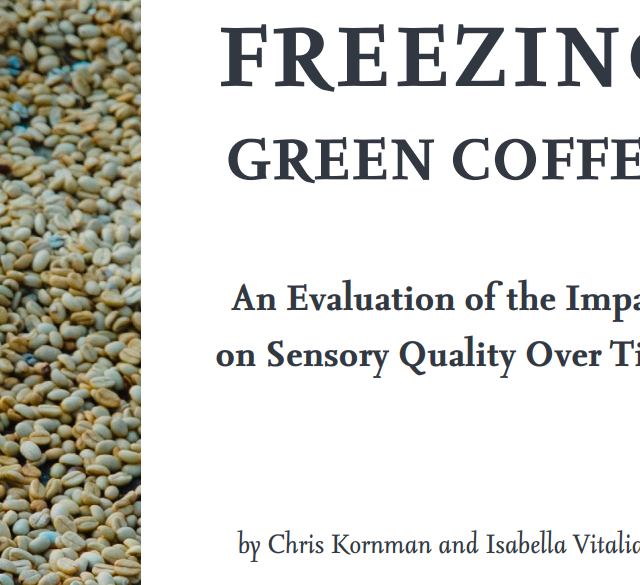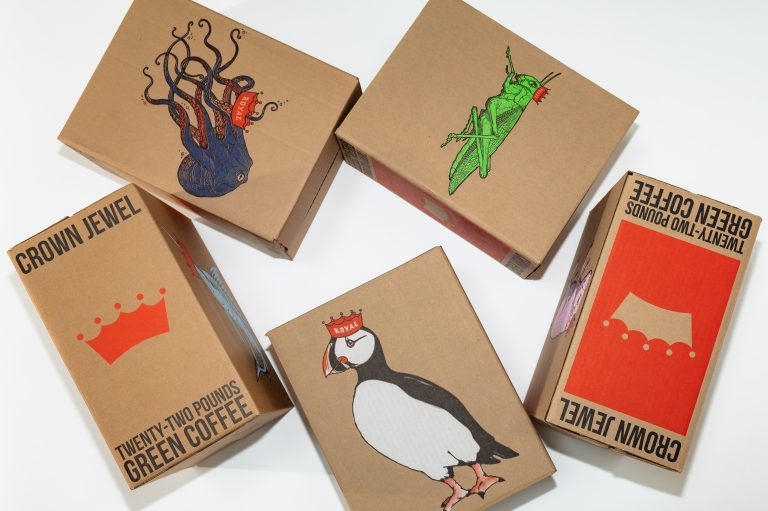If you ever read this blog, you may notice that we harp on ripe cherry selection at the farm level as fundamental to maximizing quality. I believe that any coffee can be improved through adherence to using only fully ripe, red fruit (or orange, yellow, or pink). As you may also know, it is not actually all that common, even in a place with such coffee history and already outstanding quality as Ethiopia. Now, there are two ways to go about getting 100% ripe cherry: a mill can accept whatever is delivered and then sort it, removing all the partials and underripes, or the mill can accept only ripes and thus the picker will only harvest ripe cherry in the first place. Fundamentally speaking, they are the same thing.
In Brazil, giant syncopated mechanical insects strip off every cherry on the tree, but the farms that care sort the cherries before drying. In many cases the difference in cup quality between selection by the picker and sorting at the mill is nonexistent. Ripes are ripes, so what does it matter, right? Thompson Owen has an excellent piece about all this here. But here is the rub: if the picker and farmer are only selecting ripe fruit, it means they too are invested in the quality improvement end of things. It also means they stand to earn more money. The picker, because he needs to be compensated for the fact that the total volume he will pick in a single day is less without the weight of underripes, and the farmer because he will have a higher quality product that hopefully someone is willing to pay more for. Everybody wins.

Recently I was in Dara, Sidama in Southern Ethiopia, initiating a new ripe cherry buying project for Royal Coffee with some of the farmer cooperatives there. This has worked well for us further to the south, in Yirgacheffe (thanks in great measure to the work of the upstanding and forward looking Counter Culture Coffee).The idea is to pay the farmer an extra 2 birr per kilogram of fruit, and only accept ripe, red cherry at the mill (if you can calculate what that works out to on a full container FOB basis, you may have a future as an importer). At one large cooperative in Sidama, which shall remain nameless and which exports about 30 containers a year, I came face to face with the stark differences highlighted in the above paragraph. The cooperative manager, presented with our compensation scheme, responded that he could accept the payment, sort the cherry that had been delivered, and distribute proceeds to all members equally, but he could not pay the farmers extra specifically for ripe cherry selection because it would destabilize the cooperative. His premise was basically that everyone would want the extra payment, and he could not be seen to be playing favorites.
Mike McKim of Cuvee, who was traveling with me, made the insightful remark that “is not this backward logic?, We do not want to pay more because then all the farmers would want to do it? Is not that the whole point?!?” My reply to Mike, cynical middleman that I am, was “in all honesty, I am not sure I can sell 30 containers of an already expensive coffee just because it cups better, once it is marked up the additional 25 cents per pound”. (If you are still with me, that 25 cents is the conversion from above). I am dying to be proven wrong. I very much want to believe that the specialty industry is big enough to support this kind of thing on a grand scale. High scoring exclusive micro lots are fun to cup, but macro level improvements are what really make a difference. So with that said, this year we will be offering about 600 bags from our great supplier the Shilcho Cooperative, where the farmers only delivered ripes and were adequately compensated for it. It will cost at least 25 cents per pound more than the already pricey Grade 1 coffees we sell, meaning well over $3.50/lb.
If this project is supported by enough buyers, next year we will do more at Shilcho and expand it to other cooperatives. The chasm between the super high efficiency of Brazilian-style mechanization and everything else is ever widening. This is the way forward for specialty, if you ask me. Let”s make it happen. If you are interested in these coffees, they are listed as “RED CHERRY PREMIUM” in the organic section of our Offering Sheet.


